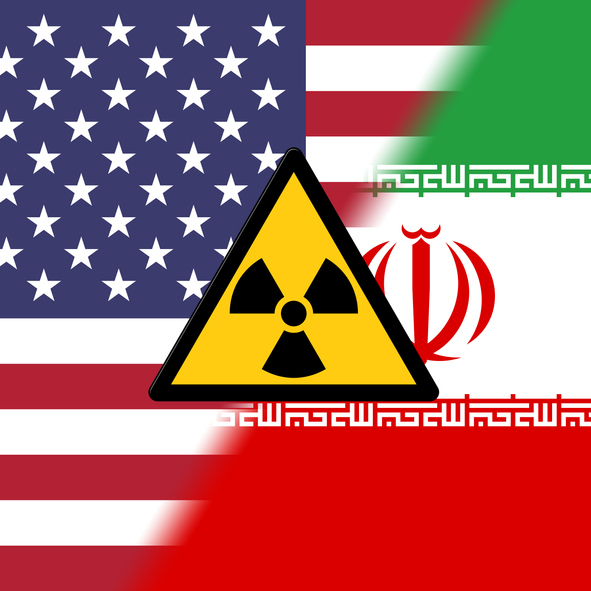iStock.com/ Credit:stuartmiles99
There is a cardinal rule in negotiations that taps into our most basic sensibilities: A bad deal is worse than no deal.
As the Biden team prepares to lift key sanctions on Iran to facilitate an American re-entry into the 2015 Joint Comprehensive Plan of Action, it would be wise to consider this axiom.
The Biden administration’s exaggerated focus on reversing former President Donald Trump’s 2018 withdrawal from the Iran Nuclear Deal, particularly in the face of repeated and flagrant Iranian violations, harms U.S. interests by creating the perception that the United States is willing to strike a deal — even a bad one — with the Iranian regime at any cost.
As University of Pennsylvania Professor G. Richard Shell asserts, “The party that thinks they have the most to lose from a ‘no deal’ outcome has the least leverage; the party that thinks they have the least to lose has the most leverage.”
Imagine telling a car salesman how badly you want that sports car in the showroom. It is a near certainty that you will pay top dollar. Yet that is exactly what the Biden administration is doing.
We might call this abdication of leverage “the politics of desperation.” But as Mr. Shell notes, leverage is not a fixed concept. Rather, it is often a product of perception or what a party thinks of itself and its position — rather than an objective fact.
In other words, there are ways to improve a party’s leverage, including finding alternatives for one’s goals or establishing a coalition of people to place pressure on the other party. Unfortunately, the Biden administration’s approach currently incorporates neither of these.
It’s worth noting that within the next decade, the JCPOA essentially blesses an industrial-scale nuclear weapons program for Iran, and also gives Iran billions in sanctions relief. Yet, there has not been one mention of an alternative to reaching a deal with Iran, either through re-entry to the JCPOA or negotiating a new agreement.
All that Americans have been given is an assertion that it is imperative that a deal be reached, and that the United States will not comply with the Iran nuclear deal until Iran does. All the Iranians hear is how badly the United States wants a deal; for all anyone knows, that may be all that the Biden team really does want.
To the Biden team’s credit, however, an Iranian return to compliance with the deal prior to removing sanctions is at least the start of a valid red line. But, as with President Obama before him — who drew the critical red line of no enrichment of uranium as vital to a deal only to abandon the provision at the first sign of resistance — there’s no guarantee that this condition won’t be similarly abandoned.
Beyond this, no other roadmap has been provided. No genuine discussion of an alternative approach to curbing Iran’s nuclear program has been proposed. We simply hear the continuous emphasis on the need for a deal, even as Iranian transgressions — and in turn, their leverage — grow.
In the meantime, the Iranians have continued escalating their uranium enrichment levels and increasing their stockpile, thus dramatically reducing the time it will take to build a nuclear weapon.
A well-calibrated response to these actions would show (not say) that these actions will not be tolerated. Sanctions should be increased, thereby reducing Iran’s leverage. It is completely baffling that a rogue state is permitted to violate an arrangement with impunity, as it did with prior U.N. Security Council Resolutions, only to be rewarded with sanctions relief.
This type of outcome is the result of the political desperation that the Biden administration can’t seem to shake.
Meanwhile, there is a coalition of supposed allies infected by the same desperation. Our European partners have been playing up to the regime since the deal began to collapse with the United States’ 2018 departure.
Unsurprisingly, our European allies sought to shield Iran from the collapse, creating a special financial vehicle to help the regime evade U.S. sanctions, while placing continuous pressure on the United States to rejoin. Even now, they are facilitating the current indirect negotiations in Vienna in order to jumpstart U.S. re-entry.
The notion of a better, longer-term deal has become conspicuously absent from the Biden administration’s latest rhetoric and with good reason. Desperation means lowering your expectations.
Our re-entry into the Iran nuclear deal will require lifting key sanctions on the regime. Once those sanctions are gone, there is virtually no reason why the Iranian regime would agree to a stricter, more robust agreement. The illusion that the regime might agree to a harsher deal — a notion previously peddled by the Biden campaign and administration — represents the triumph of hope and incompetence over reason and experience.
The Iran deal is not a steppingstone to a better deal. Once the Biden administration forfeits leverage via re-entry, it is the deal. The Biden team is making America appear utterly desperate, and the revival of the toothless JCPOA, paving the Iranian road to a nuclear weapon is the unfortunate price we will pay.
Erielle Davidson is a senior policy analyst at the Jewish Institute for National Security of America (JINSA), located in Washington, D.C. David S. Jonas is a partner at FH+H Law Firm in Tysons, Virginia. After retiring as a Marine Corps officer, he served as general counsel of two federal agencies. He teaches as an adjunct professor at Georgetown University Law Center and the George Washington University Law School.
Originally published in The Washington Times

